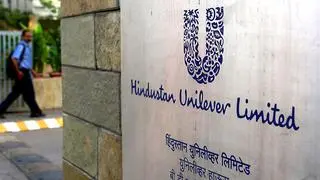The fate of the manufacturers of construction equipment — used for digging and moving earth — is closely intertwined with the state of the infrastructure sector. Given this, Vipin Sondhi, MD and CEO, JCB India, is closely watching the IL&FS saga unfold. Although the industry was impacted in the early days of the GST implementation, when it was taxed at 28 per cent (before that was lowered to 18 per cent), the company rode the tide of the construction industry in the first half of 2018, when the industry grew 40 per cent over 2017. Excerpts:
How has JCB used technology to help customers?
The customer is at the heart of our decision-making process for technology adoption. We work to make machines more productive. An owner may have many machines deployed at various areas, and have several operators handling them. Today, we have the technology to get information on real-time basis. The software was developed from scratch by JCB, along with Pricol, Wipro, apart from the mobile service provider. This was the first of its kind developed in India for India. We started providing LiveLink — a machine-tracking device and login dashboard. Since 2015 till date, over one lakh machines sold have such devices.
With this, the operator, dealers and we can track the machines’ parameters, ensuring that the equipments are operating at their best. The software is available in 11 languages to ensure that users get the info in the language of their convenience. Most of the queries on LiveLink are raised in English, Hindi and Tamil.
Has there been a cascading impact of a liquidity freeze, or of the IL&FS credit default playing out in the market?
We are watching that closely. Do we need to be cautious? Yes. Are we seeing it play out in the market? Not yet. Will it play out in the market? It is possible. We are watching the space from the ground level as well as from the macro-economic perspective.
Have you seen any amber flags go up? Or is it all green?
Nothing can be all green because of the environment we live in now. Missiles can come in from any direction. High oil prices mean customers’ operating costs going up. So we focus on fuel efficiency.
On funding, we are tracking what happens to infrastructure projects. During the past four years of public funding, it was expected that private investment will start, but that has not happened.
Public private partnership (PPP) projects will get kickstarted when the PPP model changes, and when commercial banks step in without fear of non-performing assets.
Also, till a few days back, the government had not cut taxes and duties, which means it was getting revenue for funding infrastructure. Even after the government cut the duties, the revenue loss does not seem to be much.
The amber flags for us to watch are: how long can the public funding continue? Then, there is the code of conduct in some States now, and it will kick off later for the rest of the country, which affects the momentum. Also, how will interest rates move as they face liquidity challenges?
With fuel prices rising, what are you focussing on?
Our focus is on readying for the Bharat Stage Construction Equipment Vehicles (CEV) IV, the manufacturing of which will have to start in less than two years, to improve fuel efficiency. Now, the industry makes BS CEV III equipment, which was instituted in 2011. The manufacturing of BS CEV III will stop from October 1, 2020, and from April 1, 2021, sales of such machines will stop. The entire industry is preparing for the BS CEV IV rollout, which requires a change in the entire service and parts network as it is a significant technology change.
What is the extra investment required, and the return on investment?
It’s too early to measure these. Also, these changes are legislation-driven, not a new product line that we plan to launch. The investment mostly is in brain power and testing. It is too early to talk about pricing for consumers. As of now, the machines cost between ₹25-50 lakh.
JCB has a financing arm in several other countries. Does it have one in India?
No. We use all non-banking financial companies focussing on automobile and construction equipment. There is enough competition for customers. Each machine costs ₹25-50 lakh.
Did GST implementation in mid-2017 impact your sales?
GST was expected to be revenue-neutral. But in July 2017, the construction industry ended up with a 28 per cent GST instead of revenue-neutral rate of 18 per cent. It was brought down to the revenue-neutral rate of 18 per cent in December. So, between July and November, sales were subdued, but they recovered from December 2017 onwards.
In 2016 end, there was demonetisation, but that did not have a big impact. In 2017, we saw 17 per cent growth over 2016. In 2018, till now, the industry has grown 40 per cent. By and large, we are riding with the industry. We are retaining market share by selling one in two machines in a market comprising 27 competitors — Japanese, Chinese, Americans, Koreans, Euroeans, large Indian companies — all making in India.








Comments
Comments have to be in English, and in full sentences. They cannot be abusive or personal. Please abide by our community guidelines for posting your comments.
We have migrated to a new commenting platform. If you are already a registered user of TheHindu Businessline and logged in, you may continue to engage with our articles. If you do not have an account please register and login to post comments. Users can access their older comments by logging into their accounts on Vuukle.